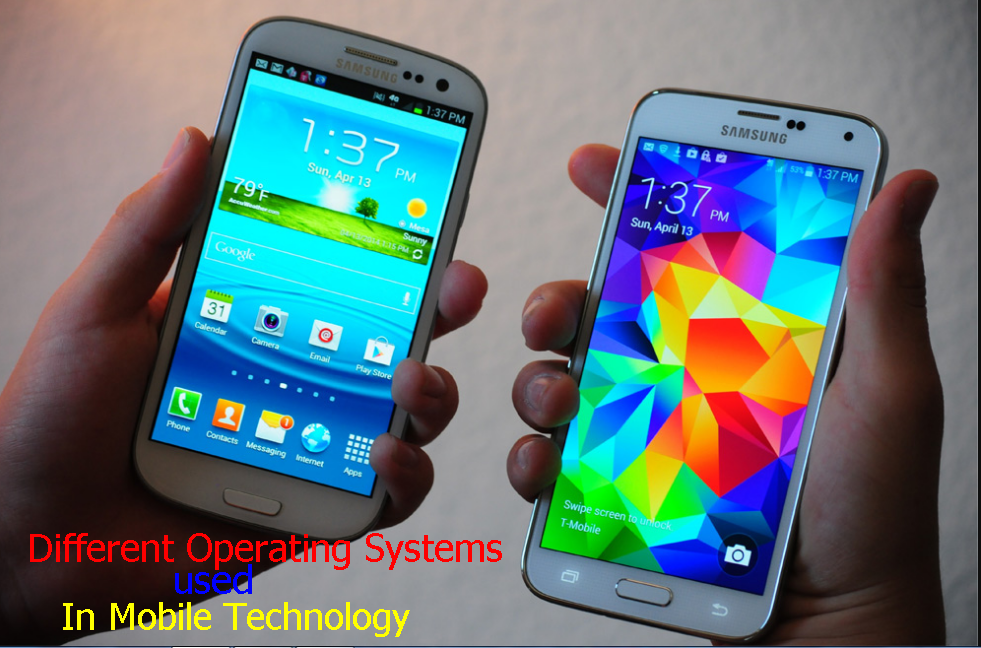ARTICLE AD BOX
Technology has made every task very easy for us today,. However thee so many task that seem very difficult for us to carry out but as technology come to existence it has to carry us to the high level of ease.Moreover, there are today for making our task more easier technology has to bring different operating systems used in mobile technology.
Mobile Operating System

An operating system for mobile devices enables users to use other kinds of application software on their phones, tablets, etc. Additionally, we can state that it is a particular category of operating system created especially for smartphones, tablets, smartwatches, etc. Additionally, they combine PC operating systems with some mobile-specific functionality. They are also rather lightweight and straightforward.
An operating system (OS) is a piece of software that serves as a conduit between the user and the system hardware. Additionally, it manages all communications between the hardware and software. Let's examine several operating system functions before learning about various mobile operating systems.
Function Of OS
Various duties are carried out by an operating system. Let's research them. These are a few of OS's features:
Memory Management
It is the control of the major or main memory. Furthermore, the main memory must contain the application that is being run. Consequently, more than one program may be active at once. Consequently, managing the RAM is necessary.
The operating System;
memory is allocated and released.
keeps track of who uses which area of primary memory and how often.
enables memory distribution when multiprocessing.
Processor Management /Scheduling
When a system has several processes running, the OS determines how and when each process will use the CPU. So, CPU Scheduling is another name for it. The OS:
- Gives and takes away processors from processes.
- Maintains a CPU status log.
Device management
The processes may require devices for their use. This management is done by the OS. The OS:
- Allocates and deallocates devices to different processes.
- keep records of the devices.
- Decides which process can use which device for how much time.
File management
A system's files are kept in various folders. The OS:
keeps track of the location and status of files.
resources are allocated and released.
Security
Through authentication, the OS maintains the system and programs safe and secure. The legitimacy of a user is determined by their user ID and password.
Other functions
The following are some other OS features:
Error finding.
recording the system's performance.
communication among various software, etc.
Types Of Popular Operating Mobile System
Before now technology has giving multi popular operative mobile system that make life better for humanity. These popular popular operative system as follow bellow;
Blackberry OS
This operating system was created by Research In Motion (RIM). It was created especially for BlackBerry-compatible devices. Additionally, business users find it handy.
Bada OS
The company that launched this operating system is Samsung. In 2010, it first hit the market. Additionally, it has capabilities like multi-touch, 3-D graphics, and program installation.
Android OS
Among mobile operating systems, the Android OS is the most widely used. Furthermore, Android was created by Google. Additionally, it is a free and open-source operating system. The kernel of this operating system is Linux. Every new update has a name based on a "dessert," such as Cupcake, Donut, Eclair, Oreo, Kitkat, etc.
Apple iOS
After android, it is one of the most popular OS. It is designed to run on Apple devices such as iPhones, iPad tablets, etc. Moreover, like the android devices have the playstore for apps download. Likewise, apple iOS contains the app store. Also, it has very strong security features.
Windows Mobile Operative System
The developer of this OS is Microsoft. It is basically designed for pocket PCs and smartphones. Moreover, it has the features of computer based Windows OS and additional features for mobile phones.
Symbian OS
Symbian Ltd. is the developer of this OS. Moreover, Nokia was the first to use this OS on its mobile phones. Furthermore, it provides high level integration with communication. This OS is based on java language.
Harmony OS
It is a latest OS moreover, Huawei is its developer. It is specifically designed for use in IoT devices.
Palm OS
Its other name is Garnet OS. Furthermore, Palm Ltd. is its developer which developed this OS for use in Personal Digital Assistants (PADs).
Web OS
Its creator is Palm Ltd. Additionally, it is built on the Linux kernel, and HP employs it in their touchpads and mobile devices
Features Of Mobile Operating System
The visuals ought to be appealing.
It should be simple to use the buttons and functionalities. Additionally, the functionalities shouldn't be overly complex.
Features must to be strong and practical.
Good app Store
One of an OS's fundamental components is an app.
Apps are a crucial component of an operating system.
The apps ought to be user-friendly and engaging.
Good Battery Life
One of a smartphone's primary requirements is power.
They need electricity for their CPUs, sensors, etc. As a result, the battery plays a crucial part.
Because smartphones use more power than ever, having a reliable battery backup is crucial.
Data Usage And Organisation
Controlling data and network utilization should be the main goal of an operating system. It ought to maintain the restriction and prerequisite in mind.
Second, it's crucial to organize data pertaining to to-do lists, calendars, alarms, reminders, etc. This data should be kept by a decent OS in a highly safe and orderly manner. Moreover, the data should be readily and easily available.

.png)
.png)
.png)
.png)




 English (US) ·
English (US) ·